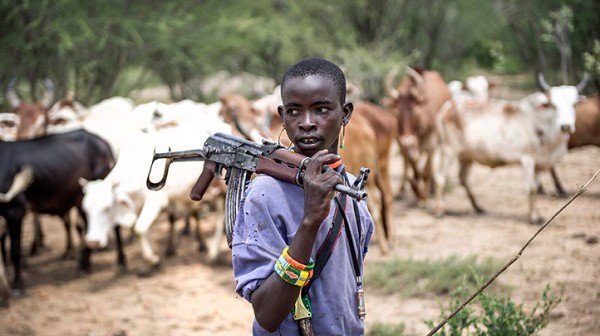Breaking News
Nigeria Loses N2.3 Trillion Annually From Conflicts Between Fulani Herdsmen And Farmers

Nigeria loses an estimated N2.3 trillion annually from conflicts between herders and farmers in four states namely Plateau, Nasarawa, Benue and Kaduna.
LEADERSHIP NEWSPAPER reports that the estimate of the loss is a part of findings in a report by the Mercy Corps, a leading global humanitarian agency, of what Nigeria stands to gain if it ends the herders/farmers’ conflicts.
The report, which studied the effects of the conflicts between 2010 and 2015, noted that Nigeria loses about 2.79 per cent of its Gross Domestic Product (GDP) due to the conflicts with Plateau State losing an estimated 75 per cent of its Internally Generated Revenue (IGR), Kaduna, 22 per cent Nasarawa, 45 per cent and Benue, 44 per cent.
Presenting the report yesterday in Abuja, the Country Director, Nigeria of Mercy Corps, Iveta Ouvry, that the conflicts despite costing thousands of live and displacing thousands more “rarely get the desired attention”.
Ouvry said, “We wanted to investigate the economic cost of the conflict so that policy makers will treat this issue with the seriousness that it deserves. The theory is that when policy makers and others come to know how much these conflicts cost, they will support efforts to end them.”
Decades-old violent conflicts between herders and farmers in Nigeria’s Middle-Belt have devastated local communities, reducing their security and economic activities as well as threaten the stability of Nigeria.
In his speech, the Head of Grazing Reserves of Stock Routes, M.S Ahmad, said that there have been concerted government efforts to address the conflicts and their attendant consequences.
Ahmad, who represented the Permanent Secretary, Ministry of Agriculture, Dr. Shehu Ahmed, said, “Generally, livelihood varies between pastoralism and a mixture of the two in Nigeria’s Middle Belt states. However, clashes between these communities over access to land, water and other natural resources have negatively impacted on the livelihood of these communities.” He pointed that the federal government has set aside 415 grazing reserves but the reserves have been encroached upon due to population explosion with stock routes even blocked.
In its recommendations, the report, which was funded by the UK Department for International Development (DFID) advocated the establishing and funding of grazing reserves and stock routes, strengthening conflict management mechanisms, improving security and justice system and supporting agricultural and livestock production.






